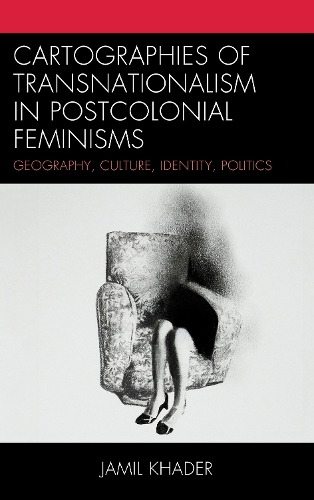
Cartographies of Transnationalism in Postcolonial Feminisms: Geography, Culture, Identity, Politics
(Paperback)
Publishing Details
Cartographies of Transnationalism in Postcolonial Feminisms: Geography, Culture, Identity, Politics
By (Author) Jamil Khader
Bloomsbury Publishing PLC
Lexington Books
2nd June 2014
United States
Classifications
Tertiary Education
Non Fiction
Feminism and feminist theory
Population and demography
Literary studies: postcolonial literature
809.89287
Physical Properties
Paperback
212
Width 155mm, Height 228mm, Spine 15mm
318g
Description
This book proffers a new theory of the radical possibilities of contemporary postcolonial feminist writings from Africa, the Middle East, the Americas, and the Caribbean, against what can be described as actually-existing colonialisms. These writers include prominent and other less-known postcolonial women writers such as Tsitsi Dangarembga, Louise Erdrich, Aurora Levins Morales, Rosario Morales, Esmeralda Santiago, Raymonda Tawil, Michelle Cliff, and Rigoberta Mench. Negotiating the contradictions among gender, nation, and globalization, postcolonial women writers construct extimate subjectivities that mark their excessive locations in the social field through the dialectical relation between the intimate and the external, the intimately or internally external, articulating these contradictions within the larger history and narratives of anti-colonial internationalist struggle for liberation and emancipation. Grounded in a commitment to the future of the postcolonial nation and the project of decolonization and liberation within the ever-encroaching, neocolonial global capitalist system, postcolonial womens narratives of displacing offer not only an alternative mode of ideological critique of scripted and commonly-inherited discourses of identity, home, culture that obfuscate the fundamental social antagonism, but also ways of changing them through practices of radical politics. The book thus charts four intersecting, dialogic strategies, by which postcolonial women writers produce extimate subjectivities: travel, unhomeliness, multiple and shifting subject positions, and transnational alliances. First, specific strategies of travel, voluntary and involuntary, within glocal networks of dispossession, displacement, and labor migration that foreground their extimate locations as internally external. Second, tactics of unhomeliness that uncover traces of the foreign, and elsewhere, in the edifice of the familiar that serve as the basis for interrogating dominant discourses of belonging. Third, techniques of multiple and shifting subject positions that recognize the excessive location of the extimate subject, in order to unravel not only the contingency of the subjects ontic properties, but also her locations in the interplay of oppression and privilege. And fourth, strategies for building political solidarity with transnational and transethnic communities of struggle that are grounded in the concrete Universality of the excluded communities. This book bears witness to the radical possibility in contemporary postcolonial feminist writing, and promises a way out of the impasse of the current culturalization of politics in the humanities that has resulted from the uncritical celebration of hybridity and the concomitant emphasis on diaspora, postnationalism, and cosmopolitanism in dominant discourses of postcolonial, ethnic, and transnational studies.
Reviews
This is a provocative work on a timely subject. In a series of trenchant analyses of Puerto Rican writers, as well as Dangarembga, Erdrich, and Tawil, the author makes the case for extimate subjectivities as a key to the interventions of postcolonial feminism. It is a fascinating account of radical possibility in contemporary postcolonial feminist writing. -- Peter Hitchcock, Professor of English, The Graduate Center, City University of New York
This is a hands-on, eloquent, and refreshingly honest kind of criticism, rooted in feminism while drawn to community organizing and its battle with the neoliberal feminization of poverty. Unimpressed by the anodyne formulas of cosmo-theory, Khader takes us through a series of superb close-readings from the intimacy of the domestic to the ex-timacy of the political, giving us along the way one of the best defenses anywhere of internationalism as an ethos, an aesthetic, and a politics. A new kind of theory and maybe (hopefully) its future. -- Timothy Brennan, University of Minnesota
Author Bio
Jamil Khader is professor of English at Stetson University, where he teaches postcolonial literature and theory, transnational feminism, and popular fiction. He is the co-editor, with Molly Rothenberg, of iek Now: Current Perspectives in iek Studies (Polity Press 2013). His articles appeared in Feminist Studies, The Journal of Postcolonial Writing, College Literature, MELUS: The Society for the Study of the Multi-Ethnic Literature of the United States, Ariel: Review of International English Literature, Childrens Literature, The Journal of Homosexuality, The Journal of the Fantastic in the Arts, and other journals and collections.
